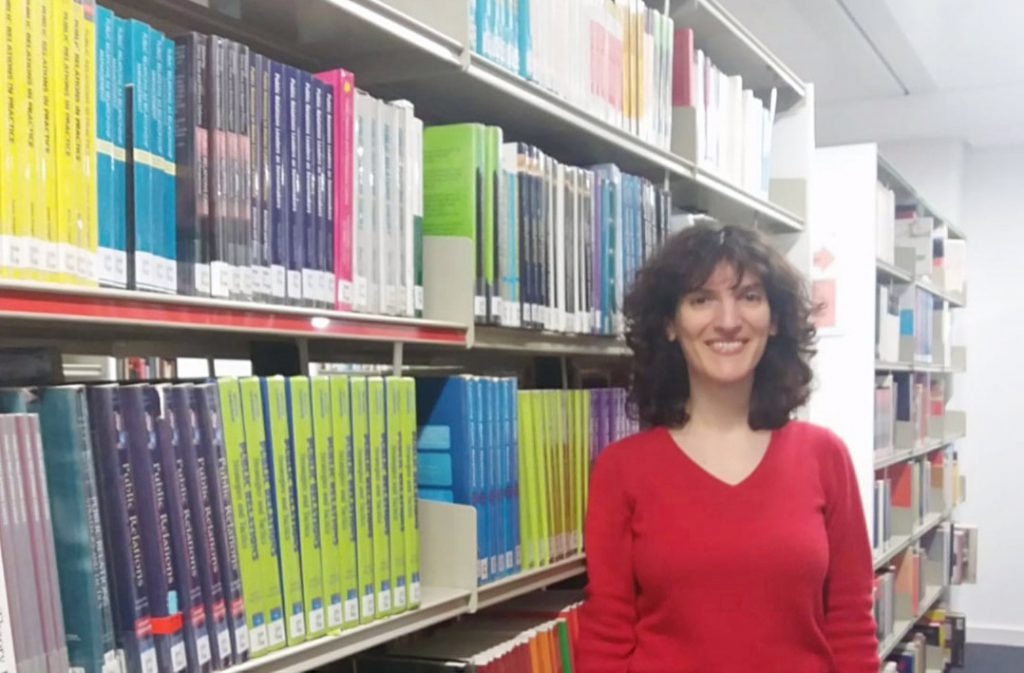My doctoral diary (part one)
About the author
Our guest authors are what make PR Place such a vibrant hub of information, exploration and learning.

Guest contributor Miriam Pelusi explains why she’s returned to the UK for her doctoral studies.
The starting point of my PhD journey is my desire to continue my academic studies in public relations. Studying is very important to me. Only by doing a PhD can I slake my thirst for learning.
A PhD takes my previous studies further by providing me with an opportunity to design, develop and defend my own research project. In my doctoral studies I explore the meaning-making of dialogue.
One of the reasons why I came to England was to study public relations in English. This lingua franca helps me to broaden the scope of my inquiry by looking at academic sources worldwide. Studying in a second language requires me to be very focused, a key quality for carrying out an in-depth study.
England has gradually become my home. I have always admired the country for being multicultural, a place where different worldviews come together. Here I keep finding more opportunities. I took on temporary jobs so I could continue studying. This blend of experiences made me more resilient and proactive, key attributes for good researchers.
Despite the uncertainty of Brexit, I have continued to invest in the British higher education system for my future. I found Leeds Beckett University to be a natural choice for me, having gained an MA here; it is a major centre for public relations education.
Therefore, I returned to the UK from Italy two years ago with the idea of doing a PhD. That idea has become my determination to succeed. I’ve been studying for my part-time doctorate for one year now, whilst working as a course administrator at the same time. Now that I am at the start of my second year, I’ve also become a PR seminar tutor.
In my first year I successfully passed my Confirmation of Registration and my first Annual Progression Meeting. I attended Research Cafés, conferences, research training sessions and workshops about academic writing. A highlight has been presenting my project at the Leeds Business School Doctoral Student Symposium in a round-table discussion with other PhD students and academics.
A PhD is an intellectual journey that looks at the logic behind an argument. Argumentation is necessarily based on logic, which means following a clear line of reasoning.
A PhD student – just like a barrister – has to construct a case based on evidence. Just like the barrister, the PhD student needs advocacy skills to present the case effectively. Clarity and brevity are the key to transparency.
For qualitative researchers like me, a PhD is also an emotional journey. In fact, what I think, and feel is part of the research process. Qualitative research is cost-effective, the onus is on the researcher.
Studying has become a process of investigating missing information in the literature, so that I can address these gaps in order to advance knowledge. But there is more. Reflexivity is now deeply ingrained in my ethos as a qualitative researcher. I use observation and ‘thick description’ as an ethnographic means to uncover the hidden layers of dialogue under the surface. Collaboration with my research participants helps me to advance knowledge in this niche area of public relations.
As international PhD student, I have benefited from the challenge of expressing myself in English. I think about the meaning of words by exploring the subjective nuances of how these words are used and perceived by different audiences.
My role as interpretivist researcher requires me to understand and explain these different aspects of the meaning-making of dialogue.
I early on discovered that to study public relations at doctoral level means putting ethics first. An eye for detail is at the very core of my qualitative research, meaning that there is nothing that can be taken for granted in dialogue. Ethics is key in order to build trust and develop good relationships.